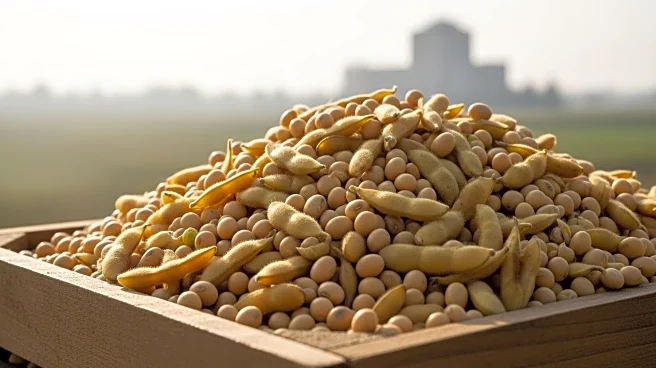What's Happening?
President Trump's trade agenda has created a new challenge for U.S. soybean farmers as China shifts its purchases to Argentina. The U.S. Department of Agriculture reports that China has not bought any U.S. soybeans during the main harvest period, leading to significant financial strain on American farmers. This situation is further complicated by Argentina's recent sale of over 2.5 million metric tons of soybeans to China, following a suspension of its export tax. The Trump administration plans to announce new support for U.S. farmers, particularly soybean producers, to mitigate the impact of the trade tensions.
Why It's Important?
The shift in soybean trade dynamics highlights the broader implications of President Trump's trade policies on U.S. agriculture. Soybeans are a major export crop, and the loss of the Chinese market represents a significant economic challenge for American farmers. The situation underscores the interconnectedness of global trade and the potential consequences of political decisions on domestic industries. The administration's response, including potential financial aid, reflects the need to support farmers facing market disruptions.
What's Next?
The Trump administration is expected to announce measures to support soybean farmers, including collaboration with the Farm Credit Bureau. Additionally, discussions between President Trump and Chinese President Xi Jinping at the upcoming Asia-Pacific Economic Cooperation forum may address trade issues. The outcome of these talks could influence future trade relations and impact the agricultural sector.
Beyond the Headlines
The trade tensions and their impact on soybean farmers may lead to increased advocacy for more stable trade agreements and policies that protect agricultural interests. This situation also raises questions about the long-term sustainability of current trade strategies and their effects on global economic relations.










